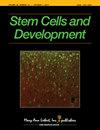脂肪来源干细胞对子宫内膜息肉成纤维细胞的调节作用。
IF 2.5
3区 医学
Q3 CELL & TISSUE ENGINEERING
引用次数: 0
摘要
子宫内膜息肉(EP)是子宫内膜的良性过度生长,有可能导致严重并发症,从不适到炎症和不孕。子宫内膜成纤维细胞的功能障碍可能是导致息肉发展的关键组成部分。虽然手术干预是治疗严重病例的常用药物,但它也有缺点,包括感染、出血以及宫颈和邻近组织受损的风险。脂肪来源的间充质基质细胞(ASCs)是现代医学的焦点,是组织稳态、炎症和组织修复的关键调节剂,使其成为组织再生和细胞治疗的主要候选药物。在目前的工作中,从加利利医疗中心妇产科的患者中分离子宫内膜息肉,并分离和表征提取的成纤维细胞(EPF)。ASCs是从健康患者中分离出来的。在2D和3D测定中,评估了EPF-和ASC条件培养基(CM)对息肉衍生成纤维细胞的影响,以及对基质相关基因表达的影响。在此,与暴露于EPF-CM的EPF相比,暴露于ASC-CM的EPF表现出水凝胶的迁移、侵袭、收缩和细胞外基质沉积减少。总之,目前的研究表明,ASCs可能对参与形成子宫内膜息肉的成纤维细胞具有调节作用,并可能成为治疗严重EPs的保守治疗策略的基础。本文章由计算机程序翻译,如有差异,请以英文原文为准。
The Modulatory Effect of Adipose-Derived Stem Cells on Endometrial Polyp Fibroblasts.
Endometrial polyps (EPs) are benign overgrowths of the endometrium, with the potential to cause severe complications, ranging from discomfort to inflammation and infertility. Dysfunction of endometrial fibroblasts may be a critical component leading to the development of polyps. While surgical intervention is the common remedy for severe cases, it comes with drawbacks, including infection, bleeding, and risk of damage to the cervix and adjacent tissues. Adipose-derived mesenchymal stromal cells (ASCs) are at the focus of modern medicine, as key modulators of tissue homeostasis, inflammation and tissue repair, rendering them prime candidate agents for tissue regeneration and cell-based therapies. In the current work, endometrial polyps were isolated from patients admitted to the OB/GYN department at the Galilee Medical Center and extracted fibroblasts (EPFs) were isolated and characterized. ASCs were isolated from healthy patients. The effect of EPF- and ASC-conditioned media (CM) on polyp-derived fibroblasts was evaluated, in both 2D and 3D assays, as well as on the expression of matrix-related gene expression. Herein, EPFs exposed to ASC-CM exhibited reduced migration, invasion, contraction of hydrogels, and extracellular matrix deposition, compared to those exposed to EPF-CM. Altogether, the current work suggests that ASCs may have a modulating effect on fibroblasts involved in forming endometrial polyps and may serve as the basis for conservative treatment strategies aimed at treating severe cases of EPs.
求助全文
通过发布文献求助,成功后即可免费获取论文全文。
去求助
来源期刊

Stem cells and development
医学-细胞与组织工程
CiteScore
7.80
自引率
2.50%
发文量
69
审稿时长
3 months
期刊介绍:
Stem Cells and Development is globally recognized as the trusted source for critical, even controversial coverage of emerging hypotheses and novel findings. With a focus on stem cells of all tissue types and their potential therapeutic applications, the Journal provides clinical, basic, and translational scientists with cutting-edge research and findings.
Stem Cells and Development coverage includes:
Embryogenesis and adult counterparts of this process
Physical processes linking stem cells, primary cell function, and structural development
Hypotheses exploring the relationship between genotype and phenotype
Development of vasculature, CNS, and other germ layer development and defects
Pluripotentiality of embryonic and somatic stem cells
The role of genetic and epigenetic factors in development
 求助内容:
求助内容: 应助结果提醒方式:
应助结果提醒方式:


